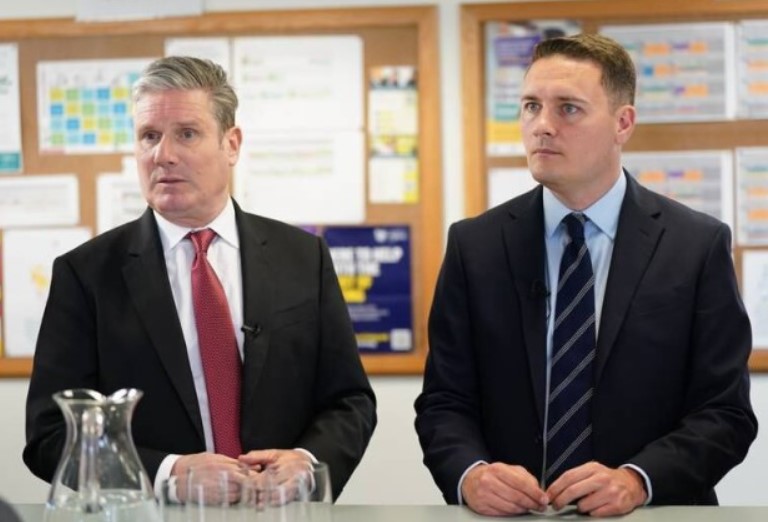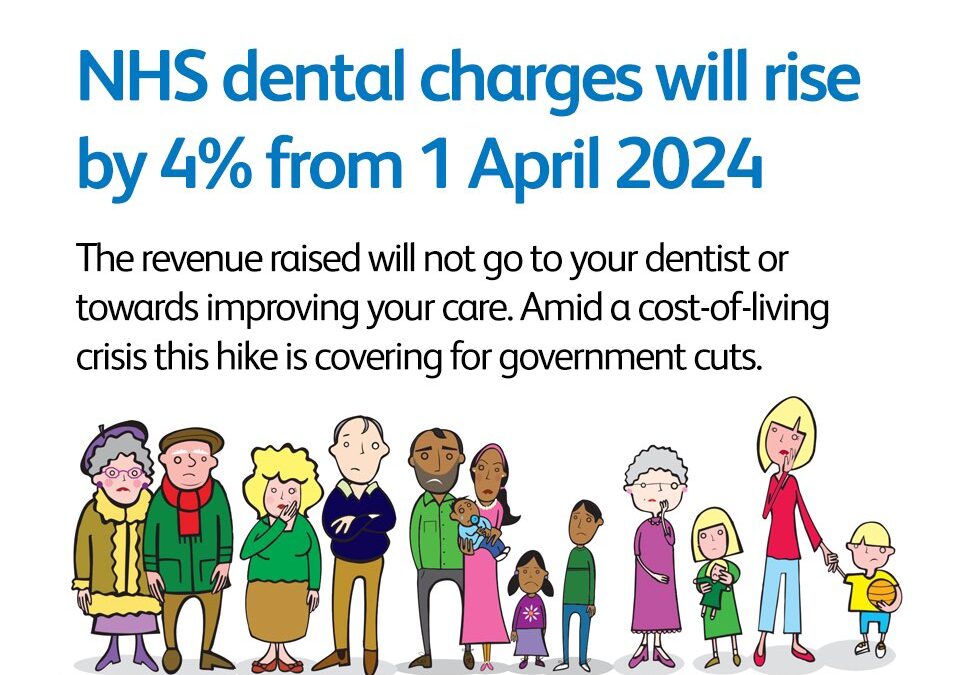By Peter Doyle (Retired Unison official for the NHS and a member of the Socialist Health Association)
I worked for trade unions in the NHS for a very long time, over 25 years. I worked for Unison and, before it merged with other union to form Unison, for the National Union of Public Employees (NUPE). I started work for the union in about 1978, in the northern region which covered the north east and Cumbria, and I represented health staff until I retired in 2005.
That means I’ve been through every management structure that’s ever existed in the health service, and all of them have been pretty bad but the first one was the best of a bad bunch, even though it could have been massively improved.
Back then, in the 70s and 80s we didn’t have Chief Executives (CEOs) in hospitals. You had a senior officer but you didn’t have CEOs. We didn’t have trusts, which were brought in by Kenneth Clarke, who was Tory Health Minister. We had geographic areas and each area might have had three or four hospitals and they were all covered by the same health authority. It could cover a big county and in some big cities there could be two or three. Cumbria had its own area health authority.
The health authority had an area Health Service Board that was made up of representatives from all of the hospitals. Each hospital had their own committees, their own team made up of senior managers (four or five), and representatives from the doctors and the nurses. Then there were representatives from the local authorities and from and patient organisations and community health trusts. The local councils had nominated seats.
And these hospital committees really took decisions. The area Health Authority would help them to put the decision together to make claims for money, build new units, get more staff, etc. Everything was designed to improve the service – to expand it, to make it more efficient, but not now!
An absolute nightmare
First of all they brought in independent hospital trusts which compete with each other, which is an absolute nightmare. And now, introduced into that, you’ve got these Integrated Care Boards (ICBs) who are deciding whether to award contracts to an NHS hospital or the private sector and that creates bureaucracy and waste.
There are forty-two ICBs across the country now, but the government has already drastically underfunded them. But the integrated care board could be massively transformed as could NHS hospitals in terms of how they’re managed and who manages them.
ICBs were designed, under the Tories, to streamline the service and make more efficient the health care provision that they were responsible for in their geographic area – well that worked, didn’t it!
What happened was that ICBs issued contracts to Virgin Health! They would give whole swathes of GP practices to American health-care companies. And that was on the pretence that the ICBs were making the health service more efficient. They might tell you it’s true, but it’s not.
These ICBs and NHS England and the hospital trusts which compete against each other – have they made the NHS more efficient over the last 14 years? No! Are we seeing more patients? No! Are there longer waiting lists than ever? Yes! That’s how these outfits have worked. They’ve created chaos. It was all just a cover for privatisation.
These ICBs are not democratic or representative. They have reps from hospitals, but they also they have reps from so-called “outside bodies”. It’s an amalgam of interested parties, or stakeholders. They have reps from private healthcare companies and also, for example, from transport companies. This is on the grounds that transport is important for disabled people, but it’s all smoke and mirrors. In the last ten years, transport for rural areas has practically disappeared and you’ve had these care boards pretending that they are there to improve that. And they are not improving it. Nothing has been improved. Everything has got worse.
The Starmer government say they have made a commitment of billions of pounds of extra funding for the NHS, But it’s not clear where it’s going to go. They have made some progress in cutting waiting lists by funding private health care providers but have cut back funding for integrated care boards.
“Holding the doors wide open for the private sector”
Streeting, the Health Secretary, has now announced that the national NHS England structure is to be abolished. Once that happens, more will be left to the IBCs but they will have less money. The new system, however it’s designed, will be just for the administration of money to go to the ICBs so they can give it to the private sector. Guess who said they would be “holding the doors wide open” for the private sector? Yes, it was Wes Streeting. You don’t need to be a genius to work out the direction of travel of this government.

They say is about eliminating duplication and waste – and they will also eliminate 9,000 jobs. There are a thousand and one things you could do to reorganise, but under the current system, it’ll never work well. It used to – nearly – in the 70s and 80s before trusts were introduced. At least you had people arguing for improved services. Now, whatever they do just makes matters worse.
Funding is a massive problem of course, but even if we gave the NHS spending a huge increase, it would not improve matters because of the way the service is set up. You could invest billions in the health service but a huge proportion would go to the private sector. And the private sector take profit and that profit should be spent on the health service not for shareholders. That is the problem.
The system when I started is a world away from what we’ve got now. The managers were good because they answered to people in the hospital. There were a lot fewer managers under the old regime. They talk today about cutting back on bureaucracy, but there are more bureaucrats now than in the 70s. There were no highly-paid CEOs or Deputy CEOs then.
In one area in Cumbria, a personnel officer before the trust was established increased his salary threefold. They went from being part of a team of personnel officers shared between the hospitals to becoming the director of human resources. Before the trusts were set up, West Cumbria had a personnel department, and Carlisle had one, as did the ambulance service and the mental health trust. After the trusts were established, they all became “Directors of Human Resources” in their trusts and employed other personnel officers.
A better way to run the health service
There is a better way to run the health service. We need to get rid of the trusts – get rid of the idea that they can compete against each other for cheaper services which mean that you end up with longer waiting lists. There would be no billing systems, no internal market and no armies of accountants.
Every hospital, or group of hospitals if they are quite close, should have its management team of senior managers, not trust CEOs. We need to return to the hospital management committees that we used to have, made up of senior managers and clinicians – doctors, consultants and nurses.
All these, with the exception of the senior management team, would be elected by the consultants, by the doctors, by the nurses and other grades and groups of staff – elected by or via the unions. Then there should be representatives of local councils, patients groups and the wider community health council etc.
Those groups from each hospital would nominate their representatives to regional structures and the regional structure would do the same, in turn, to form the national structure. That’s how it should be done, so that you ‘ve got the voices of the workforce, voices from the local community, and from patients – what is wrong with that?
A third of these committees would be from management, a third from staff, and a third from local authorities and patient groups.
I once had to deal with a chairman of a health care trust who was the owner of a shopping chain. He had probably never used the NHS in his life – and there he was as the chairman! Well a democratic structure like I have just outlined would put a stop to that.
Integrate GPs, dentists and opticians into the NHS
We could also integrate General Practitioners (GPs), dentists and even opticians into this system. In the city of Carlisle there is not one NHS dentist – I have to go to Hexham – a 70 miles round trip. Many dentists might not want to come back to the NHS – they are making a fortune charging £700 pound for a crown – but we need to establish a full NHS dental service across the country, free at the point of use.

Carlisle has nine or ten community centres and some of them are very big and these could be used to set up community dental surgeries. We could invest properly in training many more dentists and abolish the tuition fees – so they don’t have any debt if they come and work in the NHS surgeries. They could be asked to commit to a seven or eight year contract.
If tuition fees are generally abolished in future, then dentists would only be charged tuition fees if they didn’t work for the NHS for the required contract period. The same system could be used for GPs and hospital doctors as well.
Regarding GPs, in the practice where I am a patient, some of the GPs own the practice but they employ other doctors who are paid a salary. So I think many of the doctors are already there. That is the case in many or most practices and it has been true for quite a few years. GPs should be properly integrated into the health service like hospital doctors and consultants are.
You could have specialist GPs who could earn more money. Some GPs would see all patients but then pass them on to another GP within the practice without having to utilise the hospital all the time. You could have combined GP practices with bigger buildings with their own x-ray facilities, blood test centres and other services, sometimes called a “polyclinic”. This would all be possible eventually under a newly envisaged NHS, driven by medics and patients and he local community and not by private profit.
The two biggest dangers to the NHS are the Integrated Care Boards awarding GP practices, mental health care trusts and other services to the private sector, and then the Private Finance Initiative (PFI). In Carlisle, under the PFI we will have paid £1 billion in debt and other payments to private developers for a £67 million hospital by the time the contract comes to an end. It’s terrifying. That’s enough for sixteen new hospitals! We need to cancel all existing PFI contracts.
The most important gem of the legacy of the Labour Party is the health service – it’s the one thing that shines out above anything else and its being destroyed, and we need to fight to save it.



